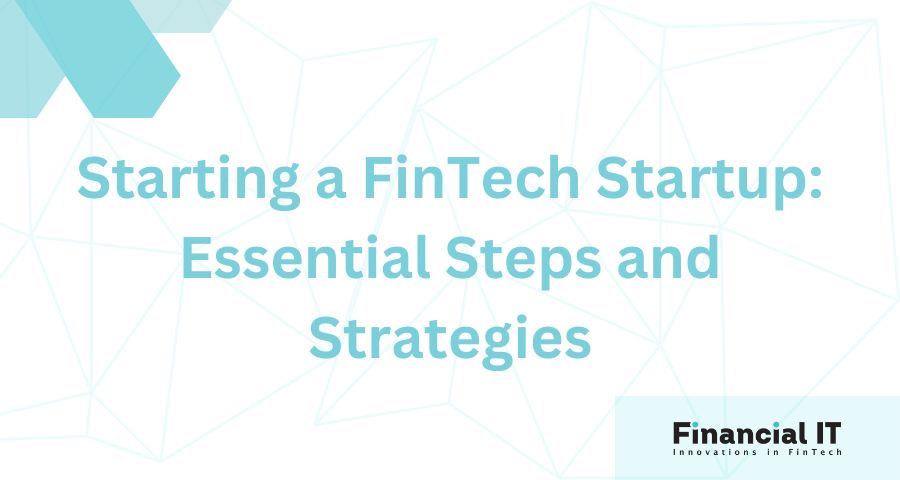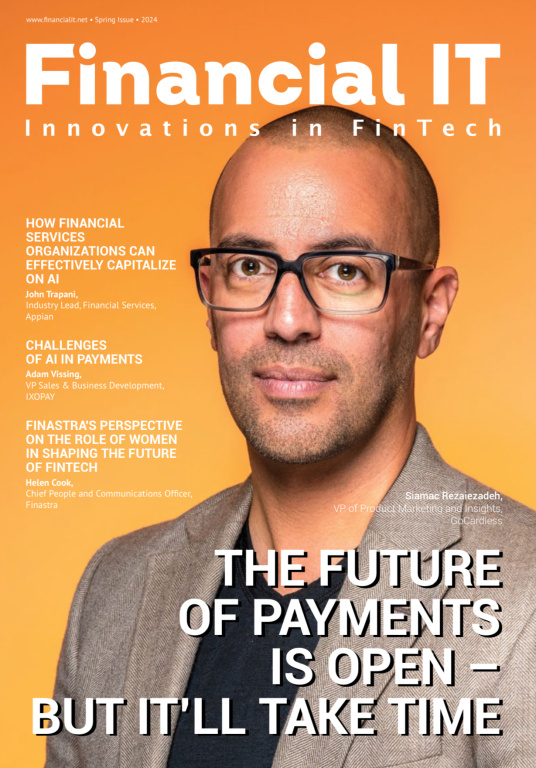Starting a FinTech Startup: Essential Steps and Strategies

- Susan Craig, at Content Writer
- 16.04.2024 05:00 pm undisclosed
Over the past decade, consumer behavior toward cash has changed dramatically. The events since the COVID-19 pandemic amplified this. Cash usage dropped across regions, whether mature or emerging economies.
Now, credit cards, debit cards, and e-wallets are taking over, and we’re on our way to building a cashless society.
In the US, the percentage of Americans using cash dropped from 24% in 2015 to 14% in 2022. On the contrary, those who stopped making cash purchases rose from 24% to 41%. The same trend was seen in Asia-Pacific, as three out of five people have gone entirely cashless since 2020.
With that, fintech companies are gaining momentum as more households and businesses turn to their products and services.
More interestingly, cryptocurrencies have started covering a broader market range as more people embrace them. With over $1T in market capitalization and over 20,000 cryptocurrency types, its business adoption and partnerships with financial institutions have become more evident.
Crypto transactions using e-wallets and banking services are now widespread, driving the peak of the fintech revolution. It continues to transform banking and finance as technology becomes more accessible.
Amid all these, fintech startups are popping up almost everywhere. It becomes easier as the number of stores without brick-and-mortar increases.
However, capturing a solid market share can become challenging, given its vast coverage and policymakers’ scrutiny.
In this article, we will provide tips for starting and running a fintech business for aspiring entrepreneurs.
Identify Market Gaps To Bridge
A powerful idea that bridges gaps within the market lies at the core of a successful business. Identifying these gaps is like seeing an oasis in a vast desert. It will allow you to transform an individual’s behavior towards money.
You should immerse yourself in the financial world and think like a consumer and an entrepreneur. List the things that hinder smooth transactions, make investing difficult, and discourage people from getting financial services. Each problem may give you an idea as a catalyst for innovation.
You may exchange ideas with your team, partners, and people outside the business to gather more information. You may also do market research to validate your insights and find logic in them. This will stimulate your creativity, allowing you to derive more ideas no matter how eccentric they may seem.
It will take time, so do not rush, but do not take too long since it may cause apprehension and confusion.
Know that starting a fintech business does not only revolve around creating a product or service. You are inventing a solution to meet an evolving need and improve the lives of those who believe in it. By addressing these gaps or challenges, you are putting the end-users at the heart of your concept. You will launch an idea that may revamp the fintech industry.
Know Industry Regulations
The difficulty of market entry depends on many factors, such as the level of competition, the number of market participants, and product differentiation.
However, a more critical aspect is the bulk of industry regulations to know and follow. Given its sensitive nature, it can be more challenging and specific in the financial industry.
The financial industry is highly concerned about consumer safety, data protection, and economic stability. A slight mistake can cause a massive problem in the future. Take subprime lending as an example. The unethical practices, such as overlending, overborrowing, and speculative mania, led to one of the greatest crisis in the world, the Global Financial Crisis in 2007-2008.
Its aftermath has lingered for many years, and even a year before the pandemic, many individuals have still not recovered from its impact. As such, policymakers have kept a keener eye on the financial sector to avoid another financial crisis.
Among the known crises, the financial sector has often been involved in many of them. Entering the fintech sector can still be challenging since it is relatively newer and prone to risks, especially now that the global economy has yet to rebound.
As an aspiring fintech entrepreneur, you must watch out for relevant financial regulatory implementations and changes affecting your business offerings. You must know laws concerning financial transactions, particularly lending, consumer protection, and investments.
You must also familiarize yourself with laws about technology and data protection. Doing so will help you prevent legal issues that may stop you from entering the market or lead to legal expenses.
Define the Product or Service You Wish To Provide
As you identify market gaps and read laws to understand, it’s time to turn your concepts into something tangible—your product or service.
Define the scope of your product or service since the fintech industry covers a broad range. Focus on a single area, such as investment technologies, digital lending platforms, and payment solutions.
You can also focus on banking services, such as checking account promotions, cross-border transactions, and money exchanges. This will help you simplify and make your ideas consistent with your expertise.
To ensure the viability of your business idea, you can do a market analysis for every concept you formulate or every product or service you offer. Knowing the product or service you wish to sell requires you to assess the market demand, the level of competition, and the target market.
You must do market analysis or market research to assess the added value of your product. In addition, it is important to know what needs to be improved and what strategies to use to penetrate the market. It will equip you with solutions to every challenge you encounter once you begin.
Raise Funds
Everything is about money after formulating your ideas and reading market laws. You will spend money on doing research. The time spent interviewing and analyzing statistics is an opportunity cost since you could have used it at work to earn money. Nonetheless, you already took a risk, so you need money to take flight.
You can do it by yourself if you have enough capital. Otherwise, you must choose between finding partners or borrowing from lending institutions to raise capital. Increase your chances of getting a loan approval by maintaining an excellent credit score and preparing a feasibility study.
Begin and Transform
At this point, we assume you have completed all the requirements for a fintech startup. You have a well-thought-out plan, a viable business concept, and adequate capital. You also got the approval for your business application. It’s time to begin by launching your product.
Even so, the path does not end there. It will be a perpetual journey, requiring you to keep moving by staying on top by getting market updates and innovating your solutions. Again, the heart of your business is the market gap you wish to fill. The market is evolving, and it may be faster in the fintech industry, given the technological advancements, regulatory changes, and shifting consumer behavior.
Stay open to feedback, and do not be daunted by change. Market analysis and quarterly business reviews (QBRs) may help maintain a solid customer base. Leveraging partnerships with financial institutions will give you more market insights. Building an efficient technology infrastructure may be integral in your development.
Takeaways
Starting a fintech business is more than just launching your solution and capturing customers. It requires more time, money, and effort than you think. With dedication, you can enhance your skills and create avenues for more innovation. It will help you achieve business success and transform the lives of your stakeholders.





















